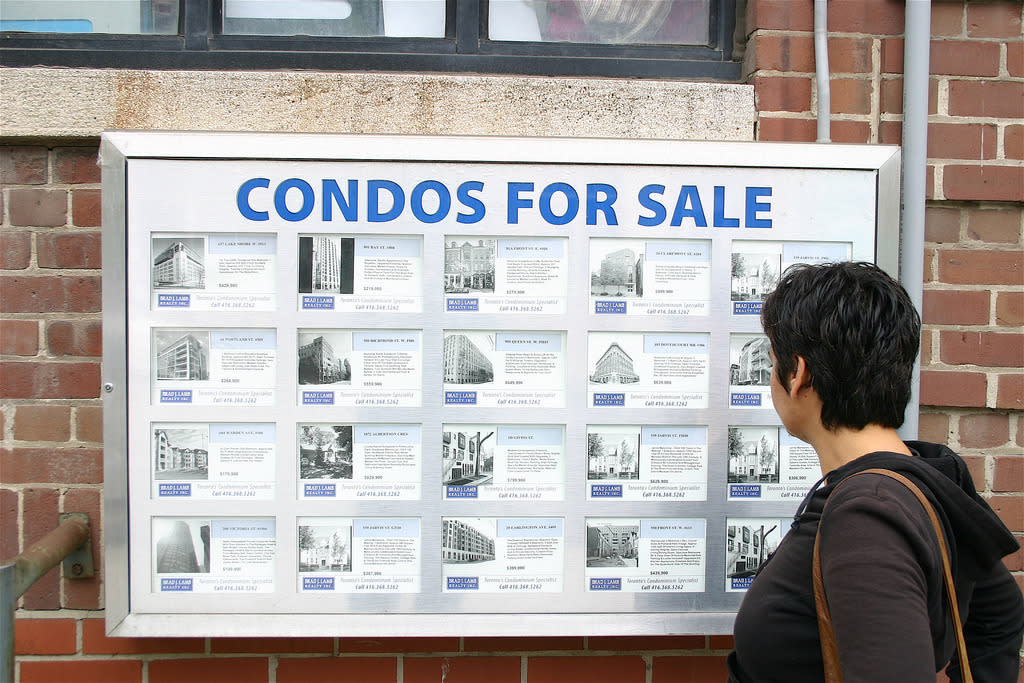Why Millennials Aren’t Jumping Into Home Ownership and How to Push Them Over the Ledge

Millennials are renting longer and slower to buy, for a number of good reasons. (Photo by Katharine Hala)
It used to be that the natural order of American life went something like this: graduate high school, go to college or get a good job, start a family and buy a home.
Those days may be over, as Millennials (those adults more or less under the age of 33) are not exactly racing to enter the housing market.
In addition to the fact that we’ve all seen or heard stories of Millennials moving back in with their parents, the numbers don’t lie. Zillow reports that first time home buyers are now renting six years before they buy a home, while in the 1970’s they averaged 2.6 years renting. First-time home buyers are also about four years older, on average, than they were in the 1980’s.
Home ownership hit a 48-year low in the second quarter of 2015, declining to 63.5 percent — a number we haven’t seen since 1967, according to The Wall Street Journal.
Meanwhile, the number of renters is increasing. In 2014, owner households decreased by 400,000, while renter households increased by 2 million, the Journal wrote. It stands to reason that some Millennials are finally graduating, getting jobs and moving out into apartments.
There are obvious issues that keep Millennials out of the housing market, including the fact that real estate prices have risen so high that it takes a person much longer to save enough for that rule-of-thumb 20 percent down payment.

Moving home and living with parents longer is the only option for some cash-strapped Millennials. (Photo by .sarahwynne.)
There’s also the fact that the job market hasn’t completely recovered yet, and Millennials are finding it tough to land a job that would enable to them cover high payments, even if they can come up with the cash to put down in the beginning.
“Millennials are delaying all kinds of major life decisions, like getting married and having kids, so it makes sense that they would also delay buying a home,” says Zillow chief economist Dr. Svenja Gudell, bringing up another reason Millennials are shying from buying.
A Pew research study shows that Millennials are waiting longer to get married, and that 20 percent of those 25 and older have never been married; that number used to be 10 percent. You could postulate that people are more inclined to purchase a home when they’re ready to get married and settle down. Also, that it’s easier to afford today’s sky high prices with two salaries rather than one.

Millennials are doing plenty of moving in and out, they’re just not purchasing their homes. (Photo by Kasey-Samuel Adams)
WalletHub recently asked a number of financial experts why they thought Millennials were waiting longer and longer to purchase a home, and they came up with some ideas that might be news to some.
According to Philip G. Swicegood, the R. Michael James Family Professor of Finance at Wofford College in Shelby, N.C.:
Millennials have taken on more personal debt from non-housing sources (e.g., student loans), so they have less borrowing/repayment capacity.
Many Millennials’ parents are less in a position to assist their children when down payments on home purchases because of the parents’ poorer financial picture (e.g. higher debt loads and inadequate retirement savings).
Having watched their parents struggle with foreclosures and imploding retirement accounts, Millennials are very cautious about making the largest purchase of their life.
So what can be done to make it easier for Millennials to purchase homes?
Christopher J. Kowal, Assistant Professor in Consumer Science and Director of the Center for Professional Selling at Purdue University has an idea.
“When our newly graduated students are leaving school with $40,000 in student loan debt, taking on more debt is not on their radar. If we want to improve homeownership for this important demographic, we need a solution to the costs of higher education and better control of the interest rates charged.”
Homebuilders are also trying to accommodate Millennial real estate needs, as documented in the trend toward tiny condos.
It might take tiny homes and student loan relief to lure Millennials into the housing market in greater numbers. Or it might just take years, savings and experience. Time, and housing trends, will tell.

